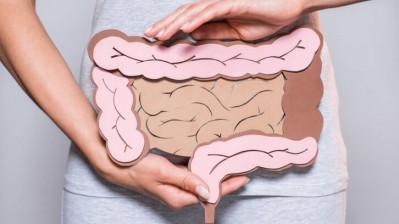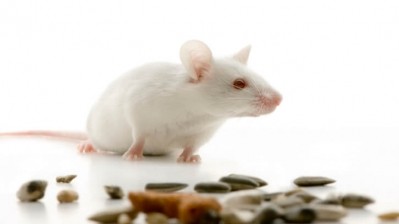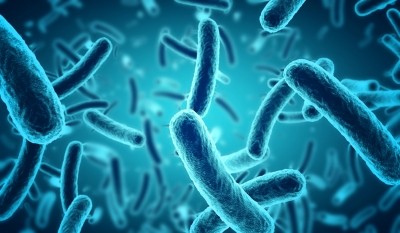Akkermansia decoded: Advance offers opportunity to exploit probiotic's beneficial effects

Researchers led by Raphael Valdivia, PhD, identified a link to the bacterium’s ability to regulate cholesterol biosynthesis. They also developed a system to manipulate Akkermansia muciniphila for boosting health.
“We are thrilled to reveal the potentially significant role of Akkermansia muciniphila in regulating cholesterol biosynthesis,” Dr Valdivia told Duke University School of Medicine. “This discovery opens up new avenues for engineering this probiotic microbe to enhance its health benefits and develop targeted interventions for metabolic disorders and immunological dysregulation.”
The team’s findings are published in Nature Microbiology.
Commenting independently in an accompanying Research Briefing in the same journal, Federico Rey, PhD, from the University of Wisconsin-Madison, stated: “A major contribution of this study is the development of protocols and tools for transposon mutagenesis and sequencing in A. muciniphila — a potential candidate to prevent metabolic disorders.
“This manuscript also starts to define, at high genetic resolution, the molecular mechanisms by which A. muciniphila degrades mucins, and it shows that mucin degradation is very important for A. muciniphila in a competitive environment. There is an astonishing amount of interesting, actionable data.”
Akkermansia
Akkermansia, and the A. muciniphila species in particular, has attracted growing interest for its health-promoting effects. In rodents, treatment with A. muciniphila reduces obesity and related disorders, such as glucose intolerance, insulin resistance and gut permeability.
The species A. muciniphila reportedly has an abundance of about 3% in the human colon, and its abundance in the intestinal mucus layer is inversely correlated with BMI, type 1 diabetes, and bowel disease in humans. Akkermansia is known to produce nutrients that feed intestinal cells responsible for producing the intestinal mucus layer, helping to maintain healthy intestinal barrier function, control gut permeability, and control low grade inflammation in the gut.
Much of the research into the species has been conducted in Belgium at the Catholic University of Louvain, and a spin-off company called A-Mansia was launched several years ago focusing on commercial development of A. muciniphila products.
Bloom Science, which describes itself as a clinical-stage, central nervous system (CNS) company exploring novel therapeutics for patients with rare and complex neurological disorder, is also reportedly investigating the potential of Akkermansia. Valdivia is a co-founder.
Study details
Working with colleagues at the University of California Berkeley, Dr Valdivia and his co-workers used a variety of techniques, including high throughput transposon mutagenesis, comparative genomics, and transcriptomics during their five-year Akkermansia journey. The techniques allowed the researchers to identify several genes for growth and colonization of the gut.
“A. muciniphila genes required for mucin transport and consumption mostly encoded proteins of unknown function, underscoring how little we know about the biology of this bacterium. Our findings indicate a potential link between mucin metabolism by A. muciniphila and its regulation of host lipid homeostasis,” explained Dr Valdivia and Dr Lauren Davey in the Research Briefing. Dr Davey is the first author on the paper and was a post-doctoral researcher at Duke. She is now an assistant professor in the Department of Biochemistry and Microbiology at the University of Victoria, Canada.
“It is unclear how mucin use by A. muciniphila regulates the expression of sterol biosynthetic genes in germ-free mice, but we postulate that fermentation products or other metabolites generated when the bacterium uses mucin as a food source modulate gene expression in colonic epithelia.
“The effect of mucin metabolism by A. muciniphila in colonic gene expression in humans is harder to assess, owing to the complexity of our microbiotas and diets, as dietary lipids and the presence of other mucolytic bacteria can confound any role that A. muciniphila might have. Nonetheless, the availability of mutants defective in various steps of mucin metabolism and of mice with defined synthetic microbial communities should enable us to define the contribution of A. muciniphila physiology to the host’s lipid homeostasis and should provide clues for how to best engineer the bacteria to enhance their probiotic properties,” they added.
The research was funded by the US National Institutes of Health, the American Heart Association, and the Natural Sciences and Engineering Research Council of Canada.
Sources:
Nature Microbiology
2023, 8, 1450–1467, DOI: 10.1038/s41564-023-01407-w
“A genetic system for Akkermansia muciniphila reveals a role for mucin foraging in gut colonization and host sterol biosynthesis gene expression”
Authors: L.E. Davey, et al.
Nature Microbiology
2023, 8, 1384–1385, DOI: 10.1038/s41564-023-01408-9
“Mutagenesis reveals how Akkermansia muciniphila degrades mucin and colonizes the gut”
















